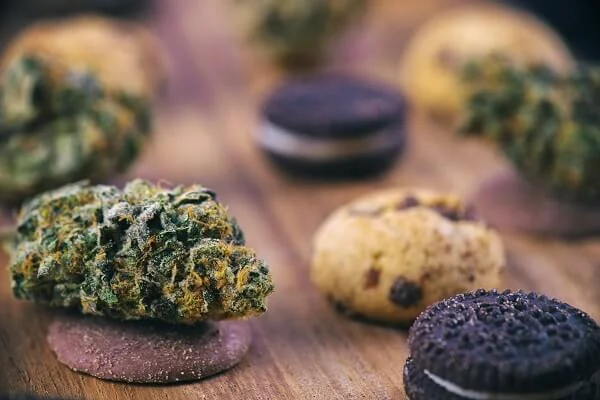In the midst of the rapidly-changing legal landscape regarding the the sale and use of cannabis in California, one of the hot-button topics of discussion surrounds edible marijuana products. Lawmakers and members of the public have significant concerns regarding edibles’ inadvertent (or not so inadvertent) appeal to children as well as various labeling issues.
The Repeal of MCRSA and the Enactment of MAUCRSA
In our recently-published blog article, California Lawmakers Consider Edible Medical Marijuana Regulations, we discussed the possible treatment of edibles under California’s Prop. 64, otherwise known as the Medical Cannabis Regulation and Safety Act (“MCRSA”). We also noted in the article that the regulatory framework regarding the use and sale of cannabis is in constant flux.
Case in point: the enactment of S.B. 94, (i.e., the Medicinal and Adult Use Cannabis Regulation and Safety Act, or “MAUCRSA”).
This important piece of legislation signed into law in late June has an effective date of January 1, 2018. The new law, which actually repealed MCRSA, integrates California’s rules and regulations for adult-use cannabis and medicinal cannabis.
MAUCRSA and Edibles
Just as MCRSA was repealed, so too were the rules associated therewith. To date, the California Department of Health has not yet published a new set of proposed rules regarding edibles in accordance with MAUCRSA.
Although there is a very good chance that many of the regulations under MAUCRSA will be identical, or at least very similar to those created pursuant to MCRSA, we cannot be sure until the new rules hit the books.
MAUCRSA: Section 77
Until the Department of Health publishes the new rules, we can take a look at the language of Section 77 of the newly-enacted MAUCRSA which specifically states that edible cannabis products shall be:
Not designed to be appealing to children or easily confused with commercially sold candy or foods that do not contain cannabis.
Produced and sold with a standardized concentration of cannabinoids not to exceed ten (10) milligrams tetrahydrocannabinol (THC) per serving.
Delineated or scored into standardized serving sizes if the cannabis product contains more than one serving and is an edible cannabis product in solid form.
Homogenized to ensure uniform disbursement of cannabinoids throughout the product.
Manufactured and sold under sanitation standards established by the State Department of Public Health, in consultation with the bureau, that are similar to the standards for preparation, storage, handling, and sale of food products.
Provided to customers with sufficient information to enable the informed consumption of the product, including the potential effects of the cannabis product and directions as to how to consume the cannabis product, as necessary.
Marked with a universal symbol, as determined by the State Department of Public Health through regulation.
MAUCRSA and “Re-Manufacturing”
Although there is no language in MAUCRSA that specifically addresses re-manufacturing of edibles, it is likely that in forthcoming rules, the California Department of Health will maintain its position prohibiting licensees from remanufacturing (the process of incorporating cannabinoid extract or concentrate into snack foods or candy that are commercially available.)
Cannabis Questions? Speak to a Knowledgeable California Attorney Today.
At CKB Vienna, LLP, we know the cannabis legal landscape is changing; and we make it a priority to closely follow all developments in relevant state and federal laws, regulations, and trends. Individuals who wish to obtain licenses to manufacture cannabis - or to ensure compliance - pursuant to the new rules should speak with the experienced attorneys at CKB Vienna LLP today. Call one of our three offices to schedule a consultation, or contact us using this short online form.

